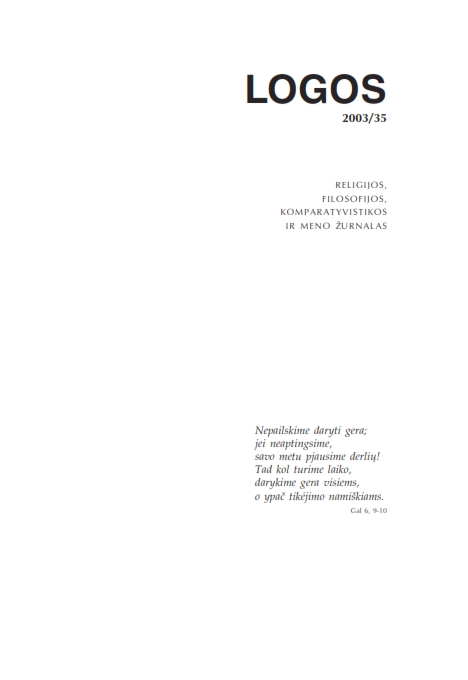Filosofijos specifika: parafizika, fizika ir metafizika
The Specific Character of Philosophy: Paraphysics, Physics and Metaphysics
Author(s): Leonid KarpovSubject(s): Metaphysics, Epistemology, Philosophy of Mind
Published by: Visuomeninė organizacija »LOGOS«
Keywords: Observer; participant; value; myth; reflection; discrete and continual structures;
Summary/Abstract: The paper tries to define the specific features of philosophy. For me, to do this means to establish the place of philosophy among other forms of social consciousness, namely, among paraphysics, physics and metaphysics. Paraphysics may be defined as valuable (mythological) consciousness. The subject of the consciousness is a practical actor, a participant in events. The mentioned actor operates with practical values reflecting his needs, goals, interests, etc. Physics (science as such) is identical to conceptual thinking. Its subject is an observer alienated from empirical events. The observer objectifies the surrounding world and thereby he is able to have true knowledge, unlike the participant with “as if knowledge”. Metaphysics synthesises both paraphysics (the position of a participant) and physics (the position of an observer) by means of reflection resulting in self-awareness. Metaphysics thinks in values like paraphysics. At the same time, its values, unlike paraphysics, may be rational ideas. Philosophy is nothing other than a rational kind of metaphysics. Philosophy as metaphysics conditions empirical experience and therefore determines the content of scientific (=physical) research. In turn, physics depends on paraphysical values.
Journal: LOGOS - A Journal of Religion, Philosophy, Comparative Cultural Studies and Art
- Issue Year: 2003
- Issue No: 35
- Page Range: 18-28
- Page Count: 11
- Language: Lithuanian

